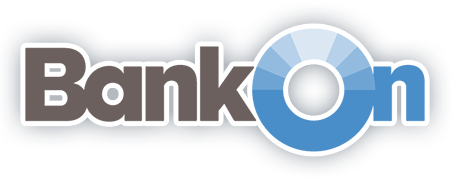
The California and Nevada Credit Union Leagues are asking each credit union in our states to offer an account that meets the National Bank On Standards to increase the availability of safe, low-cost transactional accounts for consumers.
Research from the Federal Deposit Insurance Corporation shows that there are many reasons consumers lack a basic transaction account: not enough money for the minimum balance; distrust of financial institutions; high or unpredictable fees; or identification, credit or banking history problems. Many Americans are driven to use expensive alternative financial services, including check cashers, payday lenders, and pawn shops that charge high fees for financial services that fail to help people get ahead. Without a checking account, families wind up paying too much for basic financial transactions and are hard pressed to build savings and assets.
Quick Facts:
With a heightened focus and interest to ensure low-income and rural and unbanked communities are being served, Members of Congress, the State Legislatures and regulatory bodies are examining multiple avenues to address the challenges faced by these consumers.
The Cities for Financial Empowerment (CFE) Fund has worked closely with the Bank On National Advisory Board and other key stakeholders to develop the Bank On National Account Standards. Inspired by the Federal Deposit Insurance Corporation’s Model Safe Accounts Template, these standards provide local programs with a benchmark for account partnerships with financial institutions, including their local partners. Financial institutions with accounts that meet these Standards can apply free for national certification here.
Bank On-certified accounts seek to provide a safe, affordable and functional banking experience that allows consumers to build or rebuild a relationship with a mainstream financial institution. Financial institutions offering Bank On-certified accounts are better-equipped to reach unbanked and underbanked consumers and are also poised to attract people entering the banking world for the first time, including young people and students, since they tend to build new, long-term banking relationships.
ChexSystems announced a partnership with CFE that reflects the greatly diminished risk factors in an account designed not to be overdrawn. ChexSystems is offering a new, Bank On-specific customer review strategy that will facilitate enrolling more consumers into Bank On certified accounts and giving you a data-driven dashboard that will allow your credit union to understand and monitor risk to help build successful account relationships.
The CFE Fund engages with a range of federal regulators, including the Federal Deposit Insurance Corporation, the Office of the Comptroller of the Currency, the Consumer Financial Protection Bureau, the National Credit Union Administration and the US Department of the Treasury.
Serving low to moderate income households is at the very core of our movement. Millions of households in our two states are unbanked or underbanked. While many credit unions offer accounts which meet most of the Bank On National Account Standards, there is still opportunity to ensure that credit unions take the leadership role in this area and pledge to offer an account that meets or exceeds ALL of the Bank On standards and proudly display the Bank On Certification seal of approval.
If credit unions fail to meet this challenge on their own terms, legislative and regulatory bodies have expressed interest in standardizing a prescriptive approach which could possibly include eliminating overdraft altogether.
2855 East Guasti Rd., Suite 202
Ontario, CA 91761
909.212.6000
1201 K. St., Suite 1050
Sacramento, CA 95814-3992
916.325.1360
c/o Great Basin FCU
9770 South Virginia Street
Reno, NV 89511-5941
202.638.5777 www.cuna.org
www.dfpi.ca.gov
Clothilde “Cloey” V. Hewlett — 415.263.8500
fid.state.nv.us
702.486.4120 (Las Vegas)
775.684.2970 (Carson City)